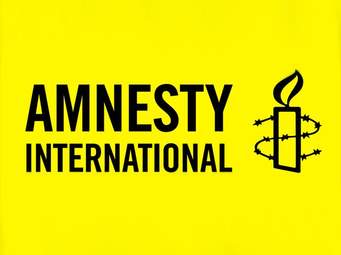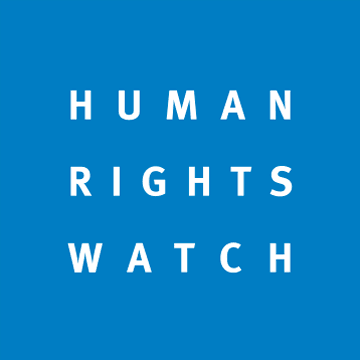| Monday - Thursday | 7:45 a.m. - 9:00 p.m. | |
| Friday | 7:45 a.m. - 8:00 p.m. | |
| Saturday | 10:00 a.m. - 4:30 p.m. |
|
| Sunday | Closed | |
Human Rights Project at Nassau Community College: Human Rights Organizations
The Human Rights Project (HRS) promotes an understanding of worldwide genocide and human rights oppression and activism through academic coursework and co-curricular events open to the college and community at large.
Internationally Recognized Human Rights Organizations
-
Amnesty International USA
 Amnesty International is a global movement of people fighting injustice and promoting human rights.
Amnesty International is a global movement of people fighting injustice and promoting human rights. -
HeforSheOur Mission
The world is at a turning point. People everywhere understand and support the idea of gender equality. They know it’s not just a women’s issue, it’s a human rights issue. And when these powerful voices are heard, they will change the world. The time for that change is now.
HeForShe is inviting people around the world to stand together to create a bold, visible force for gender equality. And it starts by taking action right now to create a gender equal world -
Human Rights Watch
 Human Rights Watch is a nonprofit, nongovernmental human rights organization made up of roughly 400 staff members around the globe. Its staff consists of human rights professionals including country experts, lawyers, journalists, and academics of diverse backgrounds and nationalities. Established in 1978, Human Rights Watch is known for its accurate fact-finding, impartial reporting, effective use of media, and targeted advocacy, often in partnership with local human rights groups. Each year, Human Rights Watch publishes more than 100 reports and briefings on human rights conditions in some 90 countries, generating extensive coverage in local and international media. With the leverage this brings, Human Rights Watch meets with governments, the United Nations, regional groups like the African Union and the European Union, financial institutions, and corporations to press for changes in policy and practice that promote human rights and justice around the world.
Human Rights Watch is a nonprofit, nongovernmental human rights organization made up of roughly 400 staff members around the globe. Its staff consists of human rights professionals including country experts, lawyers, journalists, and academics of diverse backgrounds and nationalities. Established in 1978, Human Rights Watch is known for its accurate fact-finding, impartial reporting, effective use of media, and targeted advocacy, often in partnership with local human rights groups. Each year, Human Rights Watch publishes more than 100 reports and briefings on human rights conditions in some 90 countries, generating extensive coverage in local and international media. With the leverage this brings, Human Rights Watch meets with governments, the United Nations, regional groups like the African Union and the European Union, financial institutions, and corporations to press for changes in policy and practice that promote human rights and justice around the world. -
United Nations Foundation
 The United Nations Foundation links the UN’s work with others around the world, mobilizing the energy and expertise of business and non-governmental organizations to help the UN tackle issues including climate change, global health, peace and security, women's empowerment, poverty eradication, energy access, and U.S.-UN relations.
The United Nations Foundation links the UN’s work with others around the world, mobilizing the energy and expertise of business and non-governmental organizations to help the UN tackle issues including climate change, global health, peace and security, women's empowerment, poverty eradication, energy access, and U.S.-UN relations. -
United Nations International Children's Emergency Fund (UNICEF)
 UNICEF is a leading humanitarian and development agency working globally for the rights of every child. Child rights begin with safe shelter, nutrition, protection from disaster and conflict and traverse the life cycle: pre-natal care for healthy births, clean water and sanitation, health care and education.
UNICEF is a leading humanitarian and development agency working globally for the rights of every child. Child rights begin with safe shelter, nutrition, protection from disaster and conflict and traverse the life cycle: pre-natal care for healthy births, clean water and sanitation, health care and education.
UNICEF has spent nearly 70 years working to improve the lives of children and their families. Working with and for children through adolescence and into adulthood requires a global presence whose goal is to produce results and monitor their effects. UNICEF also lobbies and partners with leaders, thinkers and policy makers to help all children realize their rights—especially the most disadvantaged. -
World Health Organization (WHO)Who we are, what we do
Our goal is to build a better, healthier future for people all over the world. Working through offices in more than 150 countries, WHO staff work side by side with governments and other partners to ensure the highest attainable level of health for all people.
Together we strive to combat diseases – infectious diseases like influenza and HIV and noncommunicable ones like cancer and heart disease. We help mothers and children survive and thrive so they can look forward to a healthy old age. We ensure the safety of the air people breathe, the food they eat, the water they drink – and the medicines and vaccines they need.






